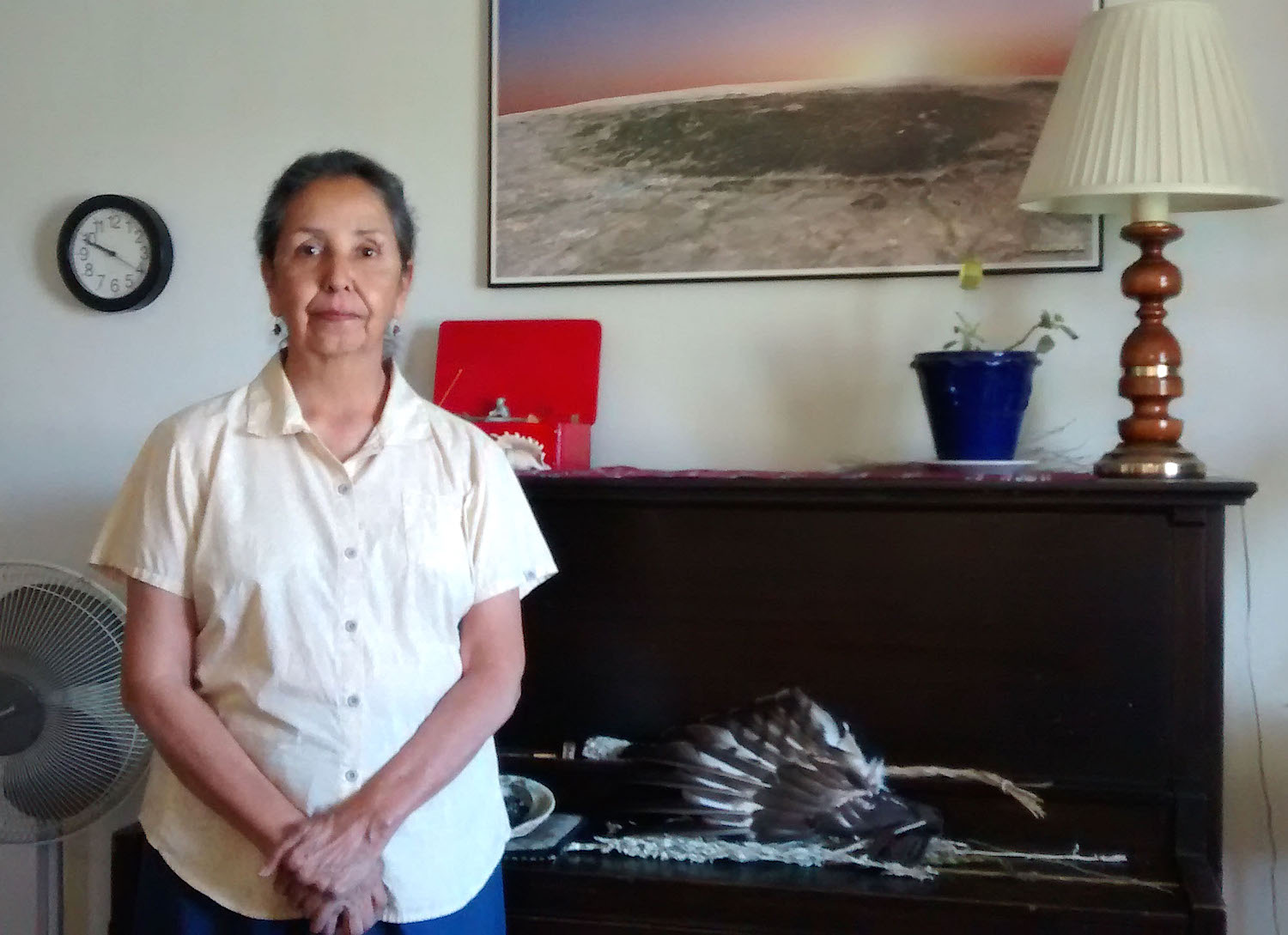Indianz.Com > News > Charmaine White Face: Fortitude in fighting for Indian health care

Getting to the U.S. Supreme Court
Friday, May 7, 2021
When Donna Gilbert asked me to be a part of her lawsuit, I immediately said yes. After having survived three other lawsuits, I should have been leery.
But when peoples’ lives are at stake, it is not hard to make a hard decision.
Initially it was the Oglala Sioux Tribal Court (OST). It was my son’s idea to go to the Tribal Court because we knew what the outcome would be. The OST court would dismiss our case because the Great Plains Tribal Chairmen’s Health Board (GPTCHB) was under the jurisdiction of the state of South Dakota and was not a Tribal Organization.
gilbertvweahkee
NATIVE SUN NEWS TODAY
Support Native media!
Read the rest of the story on Native Sun News Today: Getting to the U. S. Supreme Court
Charmaine White Face or Zumila Wobaga (74) is an Oglala Tituwan Oceti Sakowin great-grandmother, scientist, and writer. She can be reached at cwhiteface@gmail.com
Note: Copyright permission Native Sun News Today
Search
Filed Under
Tags
More Headlines
Cronkite News: Long COVID cases remain high in Arizona
Native America Calling: Eyes in the sky for development, public safety, and recreation
Native America Calling: Three new films offer diverse views of Native life
NAFOA: 5 Things You Need to Know this Week
Chuck Hoskin: Cherokee Nation works toward cure for arthritis
Native America Calling: Protecting young people from the down sides of social media
Cronkite News: Fake ‘shaman’ among candidates failing to make Congressional ballot
Native America Calling: New Native voices in poetry
Cronkite News: Tribes air concerns about border at hearing in nation’s capital
Native America Calling: Indiginerds descend on Oklahoma City
Native America Calling: Political leaders target tribes with unfounded claims
Cronkite News: First Native woman in space shares unique journey
Native America Calling: Tackling a troubling trend for Native women in prison
Chuck Hoskin: Cherokee Nation safeguards our Native language
Native America Calling: How will $1.5 billion in opioid settlement money help the populations hit the hardest?
More Headlines
Native America Calling: Eyes in the sky for development, public safety, and recreation
Native America Calling: Three new films offer diverse views of Native life
NAFOA: 5 Things You Need to Know this Week
Chuck Hoskin: Cherokee Nation works toward cure for arthritis
Native America Calling: Protecting young people from the down sides of social media
Cronkite News: Fake ‘shaman’ among candidates failing to make Congressional ballot
Native America Calling: New Native voices in poetry
Cronkite News: Tribes air concerns about border at hearing in nation’s capital
Native America Calling: Indiginerds descend on Oklahoma City
Native America Calling: Political leaders target tribes with unfounded claims
Cronkite News: First Native woman in space shares unique journey
Native America Calling: Tackling a troubling trend for Native women in prison
Chuck Hoskin: Cherokee Nation safeguards our Native language
Native America Calling: How will $1.5 billion in opioid settlement money help the populations hit the hardest?
More Headlines
